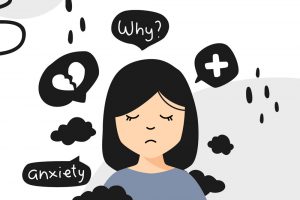Self-Care Activities For Coping With Stress
Published on May 6th, 2021
Updated on January 2nd, 2024

Self-care is an important part of living a healthy lifestyle. To practice healthy self-care, you must first understand what self-care means and what to focus on in developing a self-care routine. Self-care is the active practice of taking care of your personal needs. It is the act of taking time and energy and putting it into your own wellness.
Achieving a healthy self-care routine can be challenging at times, and that can be due to life stressors. Daily responsibilities can be taxing sometimes. The time spent on taking care of responsibilities takes away from time spent taking care of yourself.
Even though it can be tough sometimes, a consistent self-care routine is important for wellness. To develop a healthy self-care routine, learn more about the different kinds of self-care activities that address different areas of your life.
Sponsored by

Choose a therapist to work with and start healing with 20% off from BetterHelp.
Click Here1. Emotional Self-Care
Emotional self-care is the practice of nurturing your emotions. A great method of practicing emotional self-care is being sure to get enough rest throughout your day. When we do not rest during the day we are not able to give ourselves a mental break.
This can lead to mental exhaustion, which puts us at increased risk of emotional burnout. We are more emotionally vulnerable when tired or fatigued. Because of this, being sure to check in with yourself and take regular mental breaks is great for building emotional wellness.
2. Physical Self-Care
Taking care of your physical health is critical to building a healthy lifestyle that incorporates self-care. Practicing physical self-care can be as simple as taking a 30-minute walk each day. Whether taking a walk to warm up in the morning, break in the afternoon, or unwind in the evening, a 30-minute walk can help you take care of both your mind and body.
3. Mental Self-Care
Like all parts of the body, the brain needs proper care. If we overwork our brains, we are putting ourselves at risk of mental exhaustion and burnout. Mental self-care is a critical part of taking care of yourself overall.
If you find yourself mentally struggling, or if you are feeling overwhelmed, consider seeking support. Support from a therapist or support group can help with building a healthy perspective and wellness.
4. Spiritual Self-Care
Spirituality is a component of self-care. To take care of your spiritual self, you do not need to be a spiritual person. Spiritual self-care does not require practicing a religion. It also does not require learning about an existential path if these practices are not for you. If you are not religious or are not interested in traditional spirituality, you can practice spiritual self-care in other ways.
Spiritual self-care is about feeding your soul. It is about feeling like you are a part of something bigger than yourself. If traditional spirituality is not for you, consider finding a cause you believe in contributing to that cause. You can do any of the following to promote spiritual self-care:
- Contributing to a cause
- Spending time volunteering
- Self-reflect on your own personal needs
- Donate time to others
- Be a companion to someone in need
- Learn a new perspective on a life
Taking time to step out of your own day to day to contribute to something bigger than yourself can be a great way to practice spiritual self-care.
5. Financial Self-Care
Being financially responsible will make a difference in your ability to practice self-care. Money and financial security is a part of overall wellness. When we practice poor financial self-care, we feel unnecessary stress.
To promote healthy financial self-care, consider your short-term and long-term financial goals. Take time to develop a financial plan that will help you meet your immediate and long term needs.
6. Social Self-Care
Social self-care is an important part of feeling well each day. People have varying degrees of need for social interaction with others, and it is okay to cater to your own social self.
Whether you are extroverted or introverted, being true to your social needs can help you feel well and prevent burnout.
If you are experiencing feelings of loneliness or feel isolated from others, considering reaching out to family and friends and developing a routine for spending time with loved ones. If you find yourself feeling run down or burnt out from the time you are spending with friends, it is okay to take time to yourself for a while.
Practice saying ‘no’ to others. It can also be helpful to make a conscious effort to be realistic about how much you can do with friends and family.
7. Aspirational Self-Care
Everyone has varying degrees of ambition. If you feel that you have met or are on the right path to achieving your life ambitions, then you are doing well with practicing aspirational self-care. If you find yourself feeling lost or without direction in your life, take time to set a clear and attainable goal for yourself.
Whether the goal is for a career, education, or family, it will help with giving your life direction and a path to follow. This will help with boosting self-esteem and your overall mood.
Sponsored by

Find an affordable therapist online with 20% off from BetterHelp.
Click Here






Leave A Reply